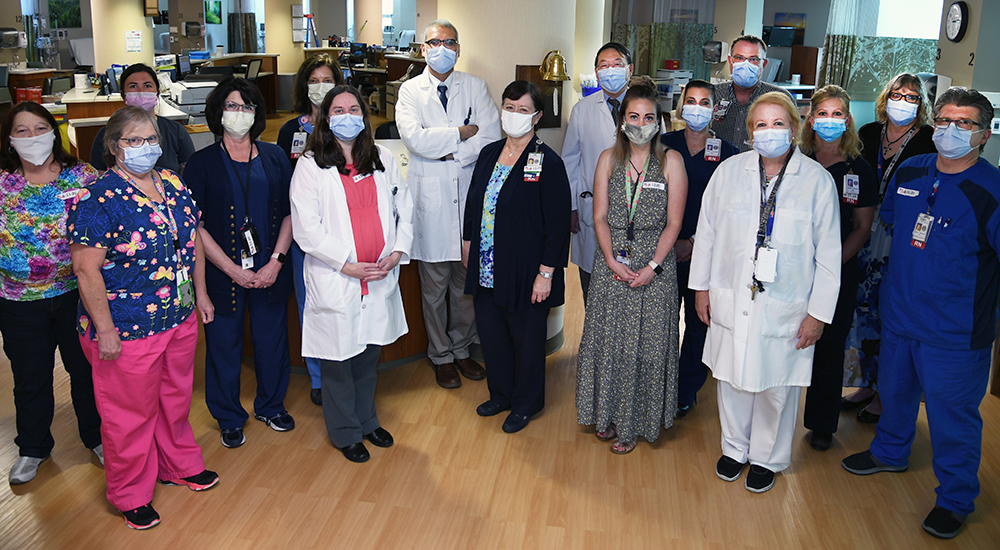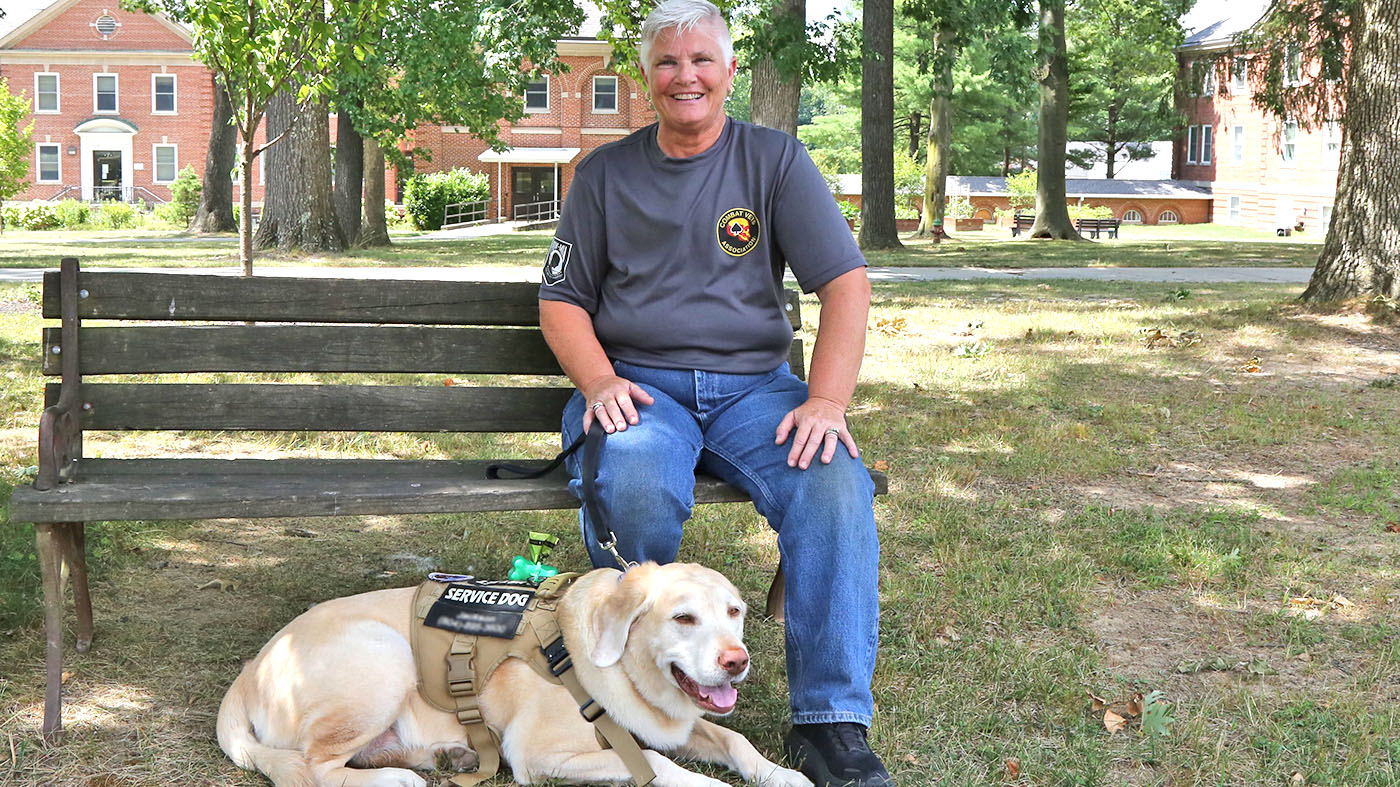Veterans who are chemotherapy patients at Lebanon VAMC were able to get their in-person, needed cancer treatments safely throughout the COVID-19 pandemic closures in Pennsylvania.
The infusion clinic did not close or reduce treatments as Veterans needed to continue battling cancer. Pausing treatments could have led to devastating consequences. The infusion clinic administers chemotherapy to patients.
Chemotherapy (chemo) is a treatment for cancer. Chemo can be a single medicine or a combination of medicines. When used alone or with surgery or radiation therapy, it can often shrink a tumor or prevent its spread.
“Administering chemotherapy is a highly specialized field. It requires additional training and certification for nurses,” said Chris Pond, nurse manager for cancer care at Lebanon VAMC. “The doctors work with the patients to develop a plan, then the patients come to the infusion clinic to receive their treatments from the nurses. Here at the Lebanon VAMC, we administered chemotherapy throughout this time.”
Patients more vulnerable to illnesses
The COVID-19 pandemic is a huge concern to the staff working at the clinic. “These Veterans are among the most at-risk patients we have. When you are going through chemotherapy, it depresses your immune system. That makes the patient more vulnerable to illnesses.”
For this reason, the clinic staff took additional precautionary measures. “We took extreme cautionary measures, calling patients personally and escorting them from the front entrance to the clinic to ensure they weren’t needlessly exposed to anything.”
“I am so proud of the staff (pictured above) and the work they do here. Throughout these difficult health care times, they continued working flawlessly.”
Marine Corps Veteran Robert Tomlinson appreciates the care. Tomlinson has multiple myeloma, a cancer that attacks plasma cells in the bone marrow. Even during the pandemic, he was able to continue his weekly chemotherapy treatments over the last several months.
Tomlinson is a recent patient to Lebanon VAMC. He was diagnosed by a physician outside of VA in 2013, and entered the VA health care system about two years ago. His cancer treatment has continued seamlessly.
He has also been able to get complementary cancer treatments, such as acupuncture for pain management. Tomlinson advises other Veterans who are not enrolled in VA health care to “go up to Lebanon and talk to them.” He appreciates the low-cost. “The only thing I have to pay for are some of my deductions.”
Lebanon patient for almost 20 years
Navy Veteran Robert Taney also appreciates this dedication to duty. Taney served onboard the USS Halsey, DLG 23, from 1962 to 1966. After his service, he worked in a variety of positions within the painting and wallpaper business. He’s been coming to Lebanon VAMC for about 20 years.
Doctors diagnosed Taney with lung cancer about three years ago. “They found it at the pulmonary clinic here when I was undergoing treatment for bronchitis.”
Taney was able to continue his treatment without a break despite the pandemic. He comes about every three weeks. “My doctor, Dr. Li-Min Liu, says things are going well.”
Taney recommends people listen to their doctors and nurses to get the best care possible. “This is the number one hospital as far as I am concerned. It’s a terrific hospital. Great, great, great people. They are all dedicated. I call them my team.”
Angela King-Sweigart is a public affairs specialist at Lebanon VA Medical Center in Pennsylvania. She is an Army Veteran.
Topics in this story
More Stories
Combat Veteran faces the traumatic events of her PTSD during prolonged exposure therapy and looks forward to the days to come.
Bob Jesse Award celebrates the achievements of a VA employee and a team or department that exemplifies innovative practices within VA.
The Medical Foster Home program offers Veterans an alternative to nursing homes.









May God Continue to help us